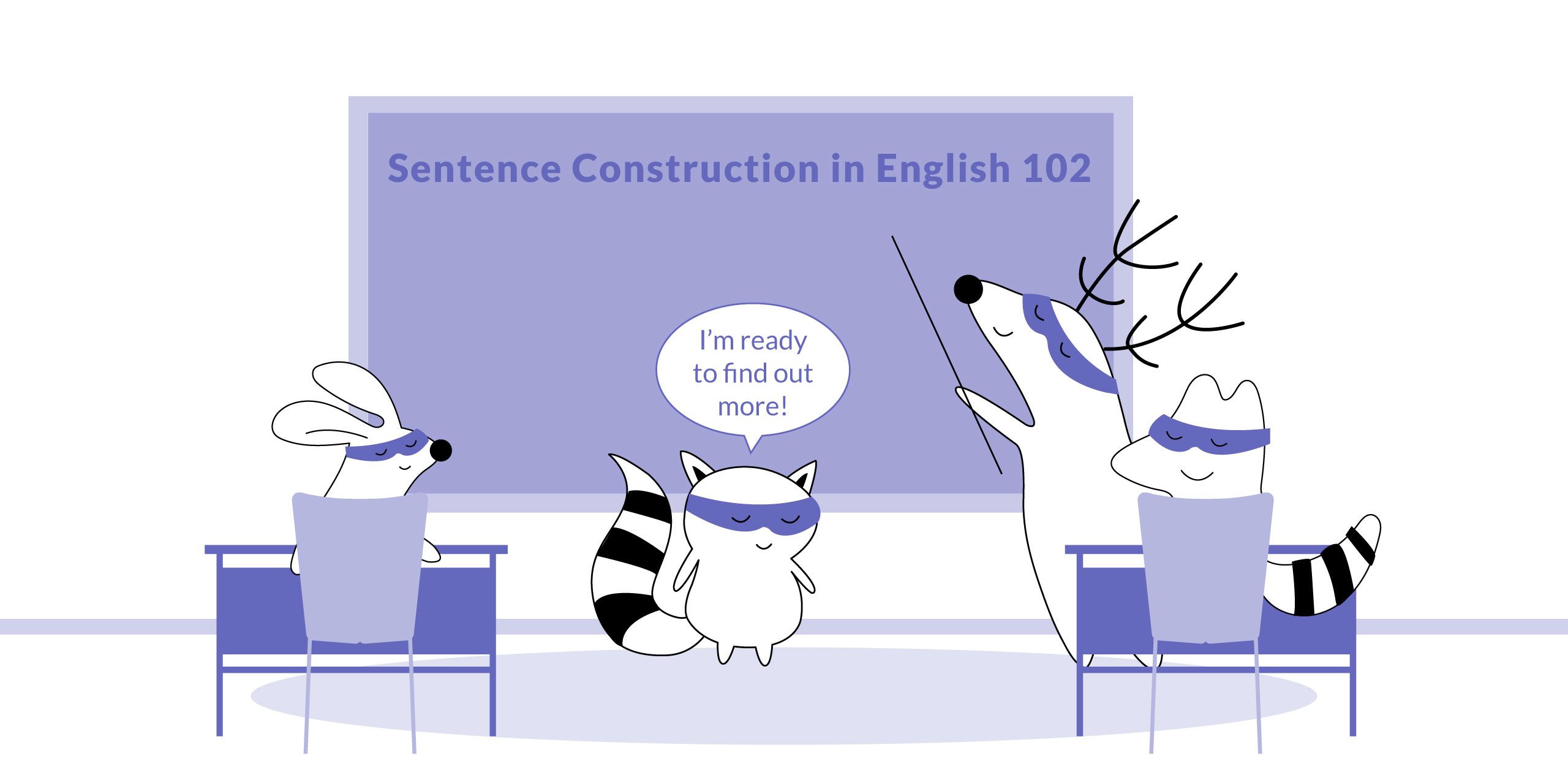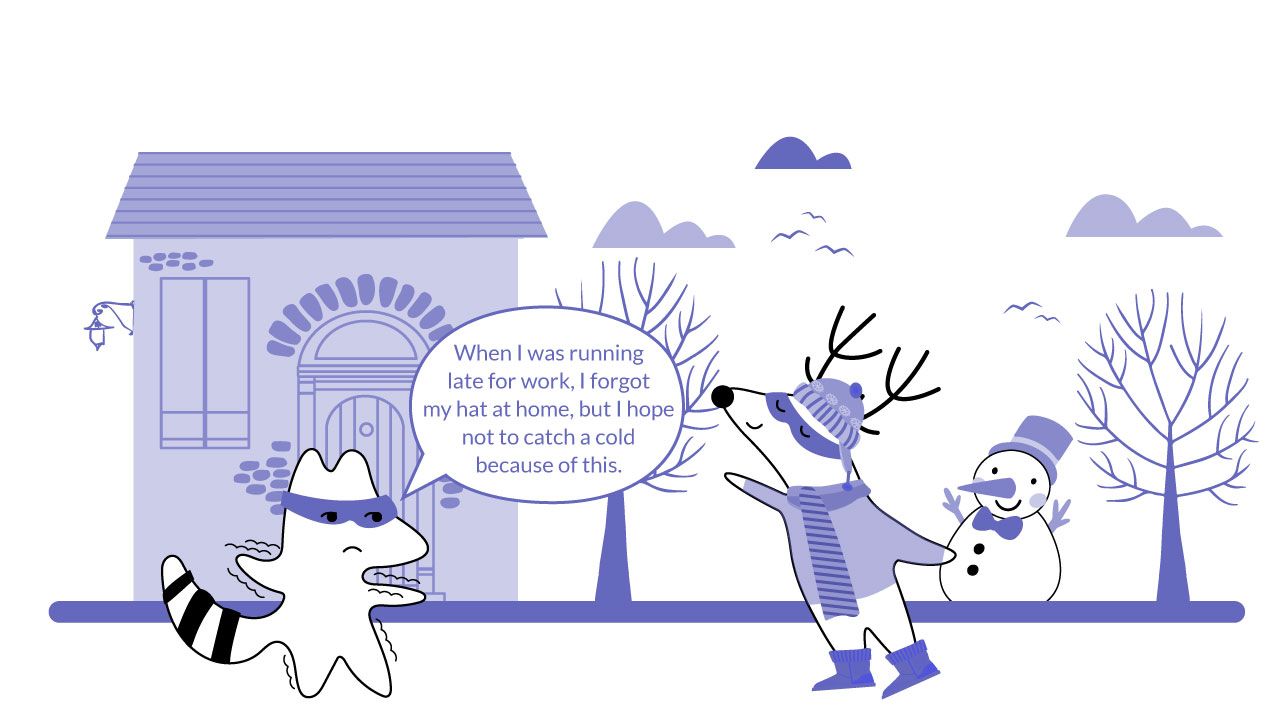
As you already know from our previous post about basic sentence construction rules, English sentences can be classified by their functions (declarative, interrogative, imperative, exclamatory, and negative sentences) or based on their structure.
Structure-based sentences are a group that includes simple, complex, compound, and compound-complex sentences determined by the clauses they contain. Before we can move to more complicated types of sentence structure, let's recall the correct order of basic parts of English sentences, which is as follows: subject + verb (predicate) + object.
You can find more information about each particular part of the sentence in the previous post, but make sure you remember about subject-verb agreement at all times.
Learn English with Langster
Now, when you are already familiar with basic types of English sentences, let's figure out how to expand them with the help of different sentence structures and advance your writing skills.
Types of Clauses
In order to understand how to construct extended sentences in the English language, it is essential to first explain how clauses work.
A clause is a group of words that contain a subject and a verb (predicate). A clause can either form a complete sentence on its own or be a group of words that need additional words to express a complete thought. Let's take a closer look:
Independent Clause
An independent clause is a complete sentence, meaning that this group of words contains everything you need to express a complete, separate thought: at least one subject, a verb, and objects (optional, can be either indirect or direct object, or both). Such clause starts with a capital letter and ends either in a period, a question mark, or an exclamation point.
Here are the examples of independent clauses, with subjects and verbs underlined:
- I am a digital nomad.
- Pandas eat bamboo!
- Our planets revolve around the sun.
Dependent Clause
A dependent (or subordinate) clause is a group of words that, although it also contains a subject and a verb, does not express a complete thought. Therefore, it can be only a sentence fragment rather than a complete sentence. Unlike independent clauses, dependent clauses can start with a small letter and end in a comma.
Dependent clauses cannot stand alone and usually rely on independent clauses to make sense or support them with necessary information. There are three types of dependent clauses:
Adverbial Clauses
Adverbial clauses are dependent clauses that modify verbs, adjectives, adverbs, or entire phrases or clauses. They begin with subordinating conjunctions.
As introductory fragments, they may start a sentence but may also be placed in the middle or at the end of it.
Here are a few adverbial dependent clause examples, with subjects and verbs underlined:
- Unless you run fast, you’re going to miss your bus.
- She remembered, after she left the house, that she didn’t have enough cash to buy milk.
- You will finish reading this article before the coffee gets cold.
Adjective Clauses
Adjective clauses are dependent clauses that modify nouns or pronouns and immediately follow the noun or pronoun they modify or sometimes begin with a subordinating conjunction.
Here are some examples of adjective dependent clauses:
- I go to the coffee shop, which is located near my place, nearly every day.
- Do you remember that girl who likes pineapple on her pizza?
- This loud noise, which is incredibly distracting, is the main reason I cannot work from home.
Noun Clauses
Noun clauses are dependent clauses that work as nouns, meaning that these clauses are used to name a person, thing, place, idea, etc. Noun clauses can be a subject, a direct or indirect object, or a complement in a sentence.
Here are some examples of noun dependent clauses:
- Do you know what time it is?
- I will ask whoever arrives next to help me with the pie.
- We met the guy who cheated on the exam on our way home.
As you can see, most frequently, a dependent clause is connected to an independent clause with one of the most common subordinating conjunctions. These include because, since, although, unless, and while. You can also use relative pronouns, such as that, which, whatever, whenever, whoever, etc.
This way, by identifying subordinating conjunctions, you can quickly identify different clauses in complete sentences.
Types of Sentence Structure
Now that you know how clauses work in English, we can get into the details of the construction of more complicated sentences - those that go beyond a standard scheme “subject + verb (predicate) + object.”
Depending on how you combine independent and dependent clauses in a sentence, you can create four different sentence types: simple, compound, complex, and compound-complex sentences. Let's figure them out one by one:
Simple Sentences
Simple sentences are the most basic English sentences. They contain only one independent clause consisting of a subject, a verb, and sometimes objects. Basically, each independent clause is a simple sentence on its own. Here are some examples:
- I like to read before bed.
- She drinks plant-based milk instead of regular milk.
- They go to the cinema every Sunday.
We explain different types of simple English sentences depending on their functions in further detail in our previous post, so make sure to check it out.
Compound Sentences
A compound sentence consists of two independent clauses or more in one sentence. In other words, a compound sentence is two or more simple sentences combined in one. There are two ways to connect independent clauses in a sentence:
- Use a semicolon between independent clauses.
- Use a comma and a coordinating conjunction between the independent clauses.
The most used coordinating conjunctions are often referred to as the FANBOYS: for, and, nor, but, or, yet, so. When using one of them between independent clauses, you signal that the clauses are equal.
Here are the examples of both coordinating methods used in compound sentences:
- I like tea, and my best friend likes coffee.
- We ran out of milk, so I bought a new carton of it.
- Our car broke down; we were late.

Complex Sentences
A complex sentence consists of one independent clause and at least one dependent clause or more. Different clauses in a complex sentence are connected by using the common subordinating conjunctions mentioned above.
This way, an independent clause is considered a main clause, and subordinate clauses are considered relative clauses.
When it comes to comma usage, whether you need one depends on the location of clauses within the complex sentence. Here are two mutually exclusive rules you should follow:
- If the dependent clause comes first in a complex sentence, place a comma right before the independent clause.
- If the independent clause comes first in a complex sentence, there is no need for a comma at all.
Here are some complex sentence examples, with dependent clauses underlined:
- I forgot my keys because I was running late for work.
- Because I was running late for work, I forgot my keys.
- Although my friends begged me, I decided not to go to the camp this summer.
- I decided not to go to the camp this summer although my friends begged me.

Compound-Complex Sentences
As the name suggests, compound-complex sentences are a combination of compound and complex sentences in one. This means that a compound-complex sentence consists of at least two independent clauses and at least one dependent clause.
In order to construct a grammatically correct compound-complex sentence, you need to follow the punctuation rules for each type of sentence structure and make sure that you use coordinating conjunctions and subordinating conjunctions in the right places.
Here are a few examples of compound-complex sentences:
- When she went to the store, I wanted her to pick up some milk, but she didn't have enough money.
- Though my girlfriend says it doesn't matter, I am short, and she is tall.
- Even if my child is hungry, he will never eat broccoli, but he will always eat french fries.

The Bottom Line
It's only natural if English sentence structure seems a bit confusing at the beginning. After all, many grammar rules overlap when it comes to writing long, compound-complex sentences.
On the other hand, once you nail independent and dependent clauses, flawless complex, compound sentences are an easy next step. When dependent and independent clauses are connected by the fitting punctuation mark and subordinating conjunction, they can create a grammatically correct compound-complex sentence.
One of the most effective ways to boost your writing skills is to read more interesting stories to pick the proper phrasing. Our Langster app will help you do just that - it is full of fun and engaging stories with grammar explanations for each - make sure to check them out.










